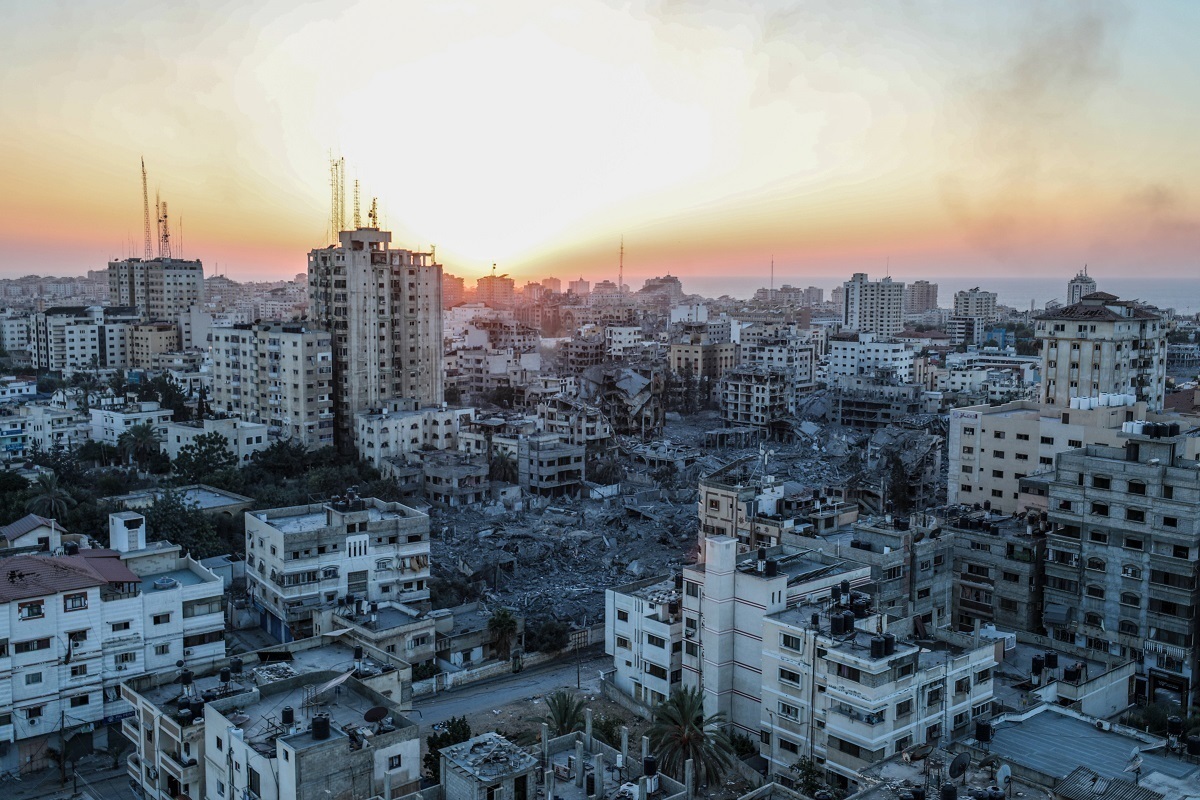Residents of Palestinian Gaza were predicted a terrible catastrophe: artificial famine is inevitable
[ad_1]

A coalition of humanitarian organizations has warned that famine is looming in northern Gaza, with people already suffering from “catastrophic levels of hunger”. The situation has been called a “man-made famine” and the Integrated Phase Classification (IPC), a group that includes the World Food Program and the World Health Organization, said 1.1 million people, half of Gaza’s population, faced famine.
“The international community should hang its head in shame for failing to stop this,” Martin Griffiths, the UN’s chief emergency relief coordinator, said on social media platform X, adding: “We know that once a famine is declared, too late”.
Jeremy Konyndik, head of Refugees International and a former Biden administration official, notes: “In my 25 years as a humanitarian worker, this is perhaps the bleakest analysis I’ve ever seen. Famine is starting now. The only question at this point is the point is how much more momentum it will be allowed to develop.”
According to The Guardian, the IPC report came after Philippe Lazzarini, the head of UNRWA, the UN agency for Palestinian refugees, said he was denied entry into Gaza, where he was supposed to be working to improve humanitarian assistance. Lazzarini said Israeli authorities banned him from entering Gaza on Monday. UNRWA, the largest humanitarian organization working in Gaza, coordinates the entry of aid trucks through the Rafah and Kerem Shalom crossings.
“This man-made famine under our watch is a stain on our collective humanity,” Lazzarini wrote on X. “Too much time has been wasted, all land crossings must open now. Famine can be prevented if there is political will.”
Also on Monday, Oxfam said Israeli authorities were preventing a “warehouse full of international aid” from being delivered to the Gaza Strip.
Israel has asked the International Court of Justice not to issue emergency orders to increase humanitarian aid to Gaza to combat looming famine, rejecting South Africa’s request to do so as “morally abhorrent.”
In a legal filing to the UN’s top court made public this week, Israel said it was “truly concerned about the humanitarian situation and the lives of innocent people, as evidenced by the actions it has taken and continues to take” in Gaza during the war.
The IPC report cited both the intensity of Israeli military operations and extreme restrictions on humanitarian access to northern Gaza as factors that pushed its population into starvation in just a few months.
“The entire population of the Gaza Strip (2.23 million people) faces high levels of acute food insecurity,” the report says. “Famine is imminent in the northern governorates and is predicted to occur any time between mid-March and May 2024.”
The southern regions of Gaza, he said, also face the risk of famine in the coming months “in a worst-case scenario.” An Israeli ground offensive on the southernmost city of Rafah, the IPC argues, will increase already catastrophic levels of hunger throughout the Gaza Strip.
Last week the UN said: “During the first two weeks of March, Israeli authorities facilitated 12 humanitarian aid missions to northern Gaza, six were refused and six were delayed.”
The US, Jordan and other international observers have resorted to parachute-dropping food packages in an attempt to deliver some aid to northern Gaza, although Michael Fakhri, the UN special rapporteur on the right to food, warned that airborne assaults would do “very little to alleviate the problem.” malnutrition from hunger and will do nothing at all to slow down the famine.”
Late last week, humanitarian organization World Central Kitchen said it had chartered a ship from Cyprus and began delivering 37 million meals to northern Gaza. But the UN said trucking aid into Gaza was proving to be the most reliable way to distribute aid. Since the Hamas attacks on October 7, only a small fraction of the 500 trucks carrying food, water and medicine that previously entered each day have been allowed to deliver essential goods, while running water and electricity have been cut off.
The IPC said dwindling supplies mean “virtually all households are skipping meals every day and adults are cutting back on the number of meals they eat so children can eat.”
In two-thirds of households in northern Gaza, the report said, “people went days and nights without eating at least 10 times in the past 30 days. In the southern governorates, this applies to one third of households.”
With famine imminent, Oxfam accused Israeli authorities of doing little to comply with the International Court of Justice’s order to provide aid to 2 million Palestinians. The Israeli government, the statement said, “is ultimately responsible for the failure of the international response to the Gaza crisis.”
Oxfam detailed how Israeli authorities “arbitrarily rejected aid items,” claiming they were “dual-use”—civilian items that could have military purposes, including flashlights, batteries and medicine.
Supply of essential equipment for aid workers, including communications equipment, protective vests, armored vehicles, generators and prefabricated staff housing, is also being stopped, Oxfam said.
The statement said there was “no information about which items are classified as dual-use items,” meaning an entire truckload could be recalled for one item.
“Some products may pass inspection one day and be rejected the next. The list of rejected goods is huge and constantly changing,” Oxfam said. In one case, goods including water bladders and drinking water testing kits were rejected without explanation but were later cleared for import.
“A shipment of vital water quality testing equipment from Oxfam has been stranded since December,” it said. “Often, when Israel considers an item to be “dual-use,” the truck is forced to leave the queue. It may take 20 days for a truck to be reloaded to re-enter the inspection line.”
[ad_2]
Source link








